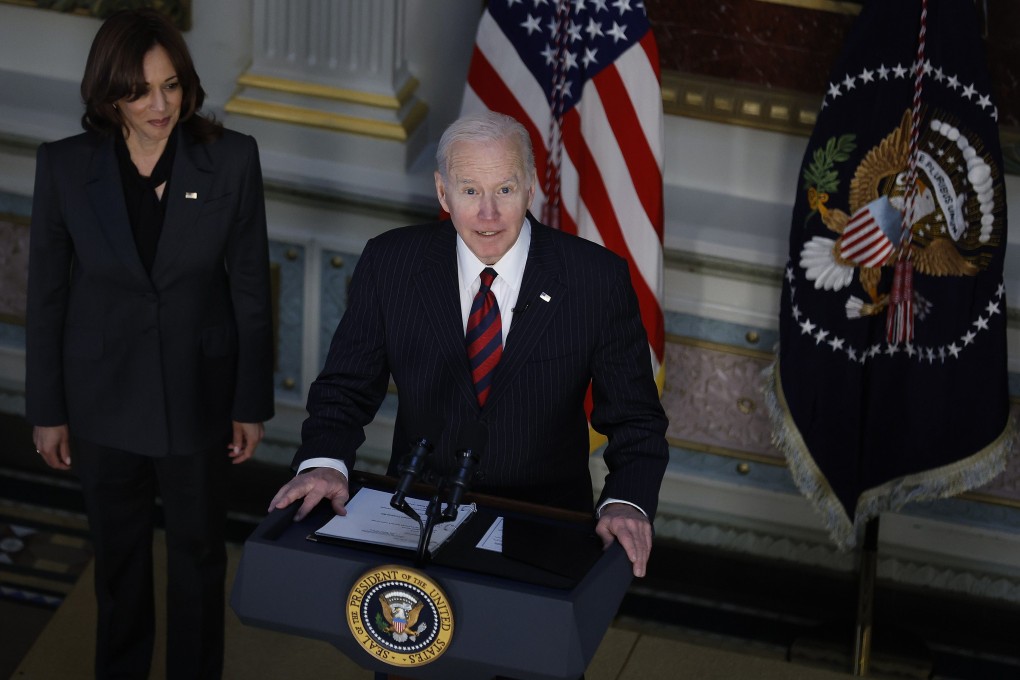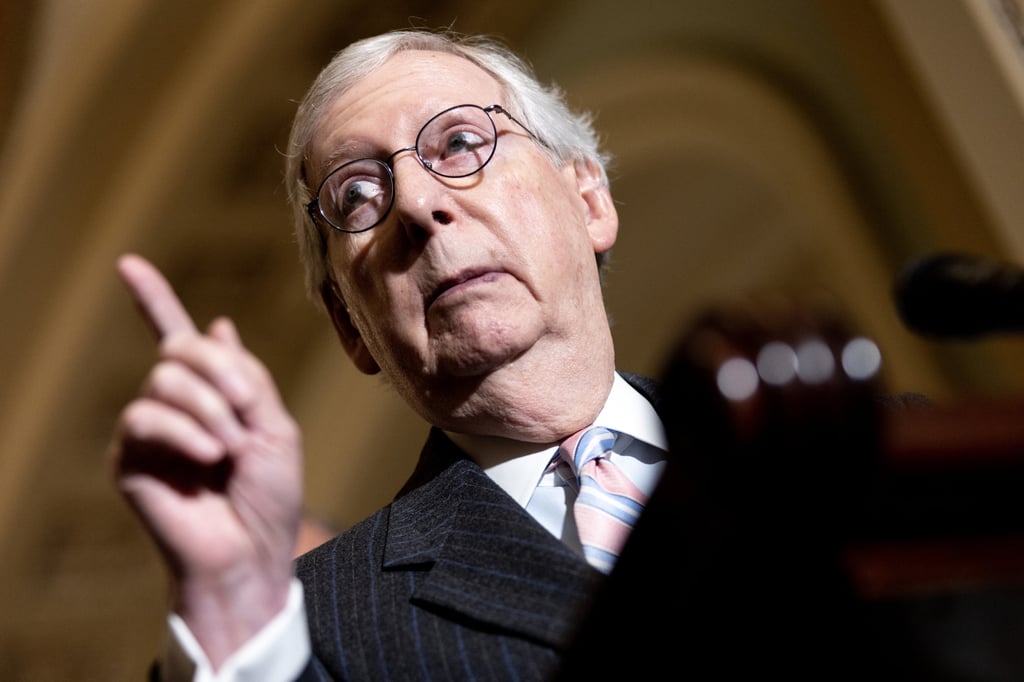Joe Biden’s proposed budget to trim US$1 trillion from deficits over next decade
- In Biden’s proposal expected on Monday, the lower deficits reflect the economy’s resurgence after the coronavirus pandemic, as well as likely tax law changes
- Biden inherited from the Trump administration a budget deficit that was equal in size to 14.9 per cent of the entire US economy

President Joe Biden intends to propose a spending plan for the 2023 budget year that would cut projected deficits by more than US$1 trillion over the next decade and propose a minimum tax on billionaires, according to a fact sheet released on Saturday by the White House budget office.
In his proposal expected on Monday, the lower deficits reflect the economy’s resurgence as the United States emerges from the pandemic, as well as likely tax law changes that would raise more than enough revenue to offset additional investments planned by the Biden administration. It’s a sign that the government’s balance sheet will improve after a historic burst of spending to combat the coronavirus pandemic.
Biden’s “Billionaire Minimum Income Tax” would set a 20 per cent minimum tax rate on households worth more than US$100 million, in a plan that would mostly target the United States’ more than 700 billionaires, according to the White House fact sheet.

The plan would require such households to pay the minimum tax of 20 per cent on all of their income including unrealised investment income that is now untaxed, the fact sheet said.
The tax will help reduce the budget deficit by about US$360 billion in the next decade, the fact sheet added.
The fading of the pandemic and the growth has enabled the deficit to fall from US$3.1 trillion in fiscal 2020 to US$2.8 trillion last year and a projected US$1.4 trillion this year. That deficit spending paid off in the form of the economy expanding at a 5.7 per cent pace last year, the strongest growth since 1984. But inflation at a 40-year high also accompanied those robust gains as high prices have weighed on Biden’s popularity.
For the Biden administration, the proposal for the budget year that begins on October 1 shows that the burst of spending helped to fuel growth and put government finances in a more stable place for years to come as a result. One White House official, insisting on anonymity because the budget has yet to be released, said the proposal shows that Democrats can deliver on what Republicans have promised before without much success: faster growth and falling deficits.